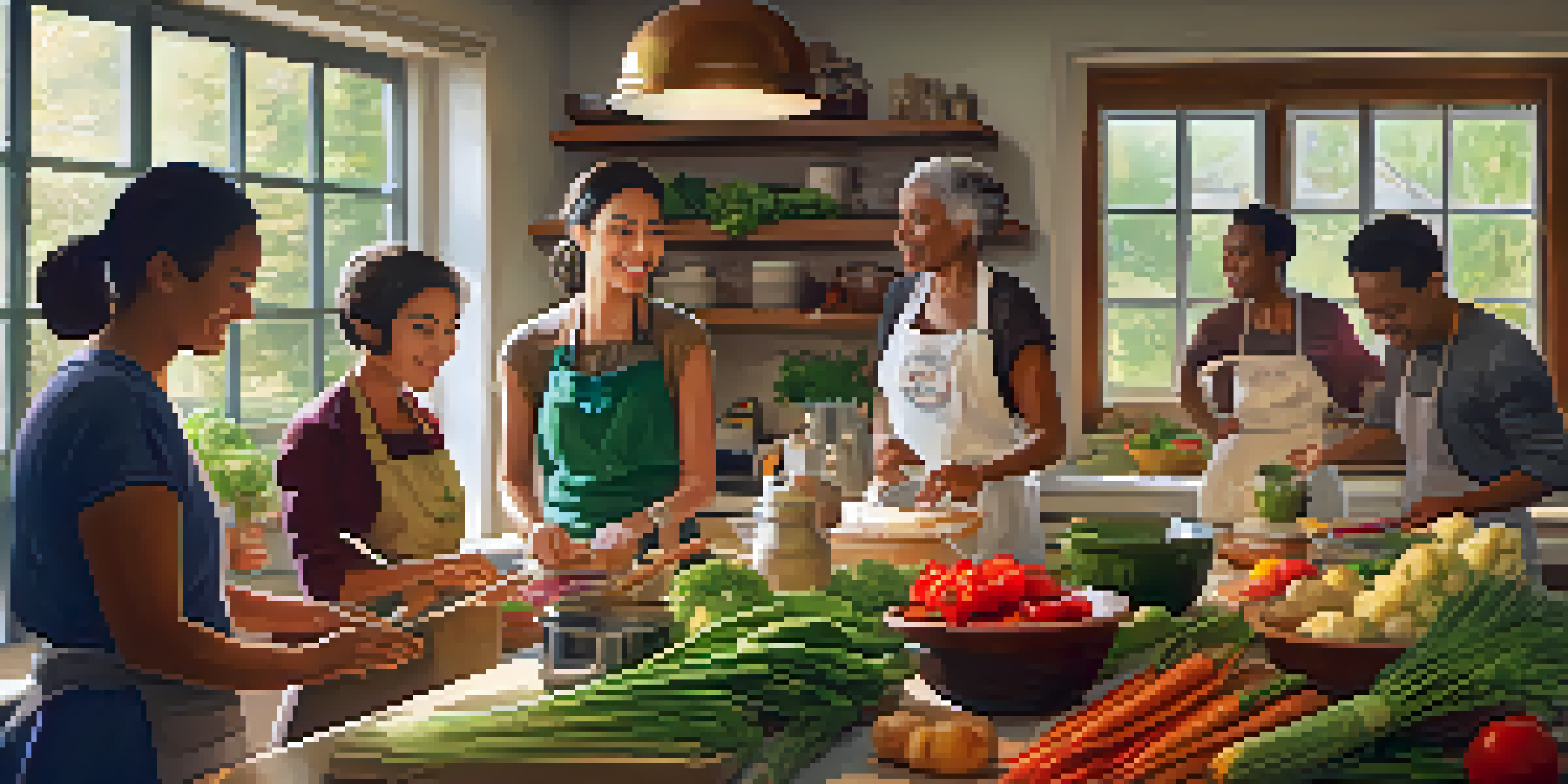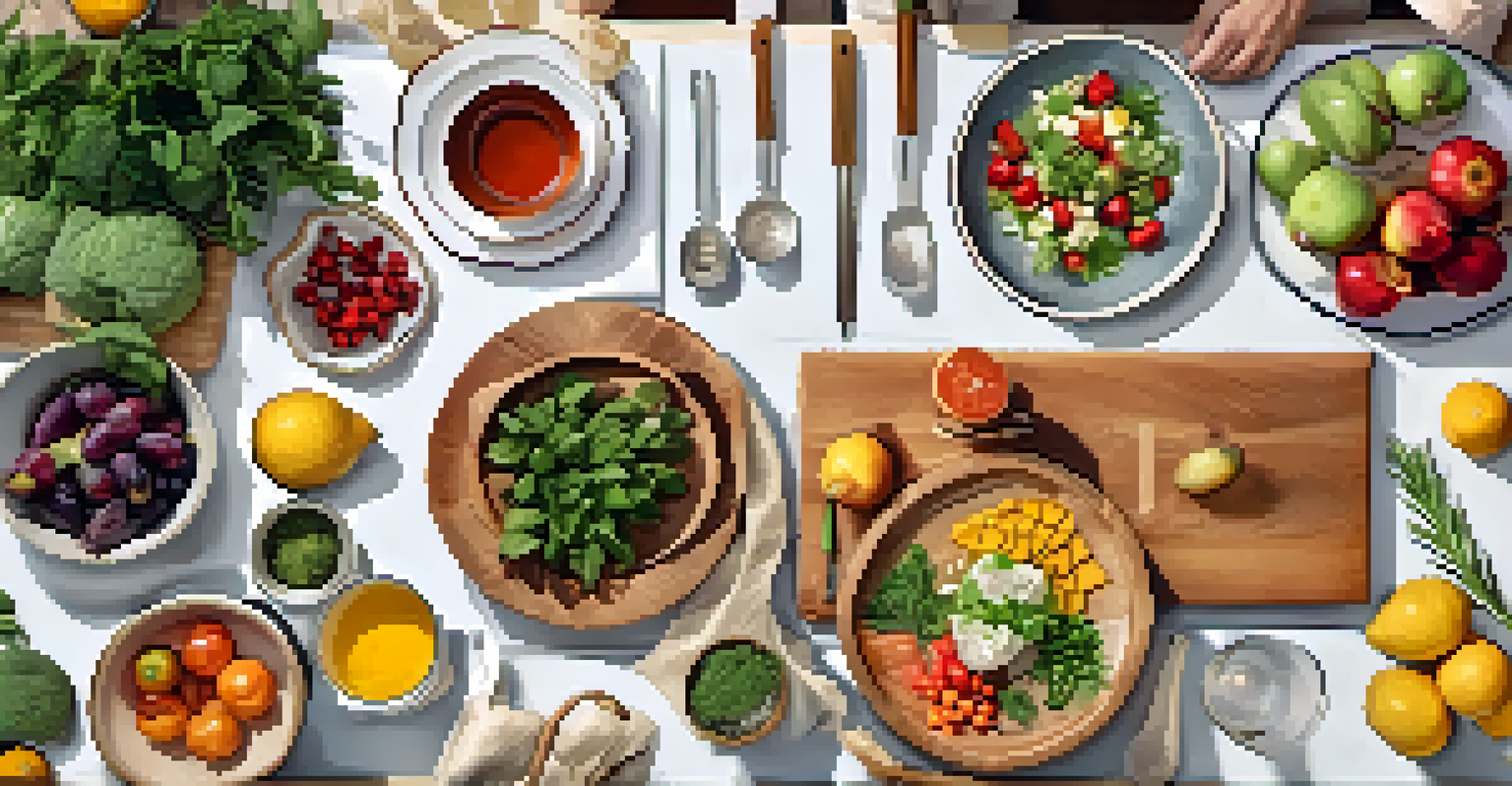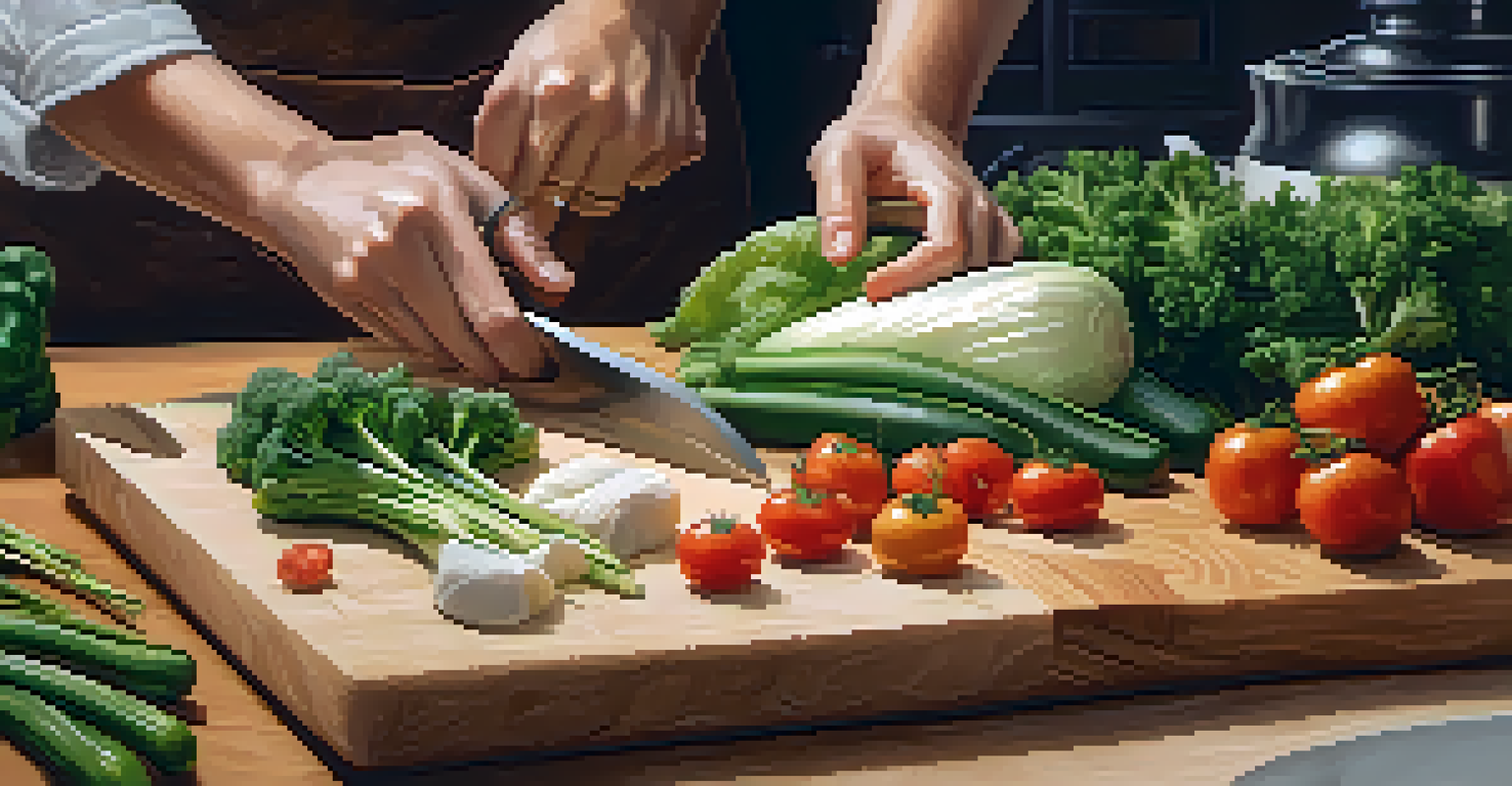How to Choose the Right Healthy Cooking Workshop for You

Identify Your Cooking Goals and Preferences
Before diving into a cooking workshop, take a moment to reflect on your personal cooking goals. Are you looking to lose weight, learn new techniques, or simply enjoy healthier meals? Understanding your objectives will help narrow down your options.
Cooking is like love. It should be entered into with abandon or not at all.
Consider your dietary preferences too. Whether you're vegan, gluten-free, or just looking for more balanced recipes, knowing what you want to focus on will guide your choice. A workshop that aligns with your lifestyle can make the experience more enjoyable and beneficial.
Lastly, think about the skills you want to develop. Do you want to master meal prep, explore international cuisines, or perhaps delve into baking? By identifying these interests, you’ll ensure that the workshop you choose feels relevant and exciting.
Research Different Workshop Formats Available
Cooking workshops can vary widely in format, from hands-on classes to online courses. If you thrive in a social setting, an in-person class may be more engaging. On the other hand, if your schedule is tight, a virtual workshop can offer flexibility and comfort.

Some workshops focus on specific cuisines or techniques, while others provide a broader range of topics. Consider what format will keep you motivated. A structured curriculum may appeal to some, while others might prefer a more casual, exploratory approach.
Identify Your Cooking Goals
Defining your personal cooking objectives and dietary preferences is essential for choosing the right workshop.
Additionally, think about the duration of the workshop. Some are just a few hours long, while others might span several weeks. Choosing a format that fits your learning style and time availability can make a significant difference in your experience.
Check the Instructor's Qualifications and Experience
The instructor can make or break your cooking workshop experience. Look for teachers with relevant qualifications, such as culinary degrees or experience in healthy cooking. Their background can provide valuable insights and tips that enhance your learning.
The secret of success in the kitchen is to love what you do.
Reading reviews or testimonials from past students can also give you a sense of the instructor's teaching style. Are they engaging and supportive? Do they foster a positive learning environment? This feedback can help you gauge whether you’ll connect with the instructor.
If possible, attend a free introductory class or watch videos of the instructor. This not only showcases their skills but also their personality, helping you determine if they are the right fit for you.
Evaluate the Workshop's Curriculum and Content
Take a close look at the workshop curriculum to ensure it covers topics that interest you. A well-structured program should include a variety of lessons, from basic knife skills to advanced cooking techniques. This variety keeps things fresh and exciting.
Consider whether the workshop includes practical, hands-on cooking sessions. The best way to learn is by doing, so ensure there are opportunities to apply what you've learned. Cooking alongside others can also foster a sense of community, making the experience even more enjoyable.
Evaluate Workshop Format
Consider the structure, duration, and delivery method of workshops to find one that fits your learning style and schedule.
Lastly, check if the workshop provides additional resources, such as recipe books or online materials. These can be great tools to continue your learning and experimentation at home, ensuring you get the most out of your investment.
Look for Flexibility in Scheduling and Location
Life can be hectic, so flexibility in scheduling is crucial when choosing a cooking workshop. Some workshops offer multiple sessions at varying times, allowing you to find one that fits your busy calendar. Look for options that accommodate your availability.
If you prefer in-person classes, consider the location. Is it easily accessible, or will you need to travel far? A convenient location can minimize stress and make attending classes more enjoyable.
For online workshops, check whether the sessions are live or recorded. Live classes can provide real-time interaction, while recorded sessions allow you to learn at your own pace. Choose what aligns best with your personal preferences.
Assess the Cost and Value of the Workshop
When evaluating a cooking workshop, consider the cost in relation to what’s being offered. While it might be tempting to choose the cheapest option, ensure that it provides enough value in terms of content and instruction. Sometimes, investing a bit more can yield a richer experience.
Look for workshops that offer a clear breakdown of what’s included in the price. Are ingredients, materials, and take-home resources provided? Understanding what you’re paying for can help you make an informed decision.
Check Instructor Qualifications
Researching the instructor's experience and teaching style can significantly enhance your workshop experience.
Additionally, consider whether there are any hidden costs, such as travel or extra materials. Taking the time to assess the overall value can help you find a workshop that fits both your budget and your expectations.
Seek Recommendations and Reviews from Others
Word of mouth can be incredibly powerful when it comes to choosing the right workshop. Ask friends, family, or online communities for recommendations. Personal experiences often highlight the strengths and weaknesses of different options.
Online reviews can also provide valuable insights. Look for platforms where past participants have shared their experiences. This can help you gauge the overall quality of the workshop and what you can expect.

Don't hesitate to reach out to the workshop organizers with any questions or concerns. Their responsiveness can give you a sense of their customer service and commitment to a positive learning experience.
Trust Your Instincts and Have Fun!
Ultimately, choosing the right cooking workshop should feel exciting, not stressful. Trust your instincts and go with the option that speaks to you the most. If a particular workshop resonates with you, chances are you’ll enjoy it more.
Remember, learning should be a fun and fulfilling experience. Allow yourself to step out of your comfort zone and try something new. Embrace the process of learning and experimenting with healthy cooking techniques.
As you embark on this culinary journey, keep an open mind. Whether you make mistakes or master new skills, every experience is a step toward becoming a better cook and leading a healthier lifestyle.